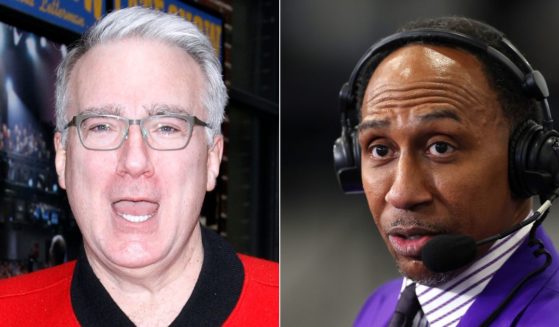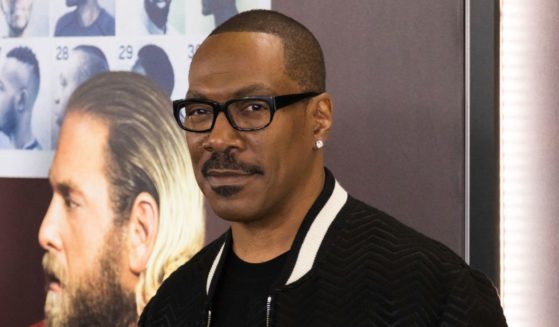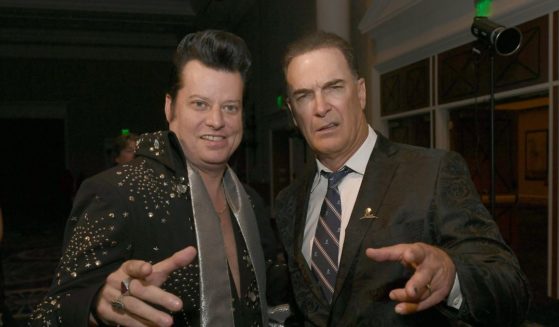DeSoto: The Democratic Cycle of Decline Can Be Broken by Trump Teaming Up with Christians
An oft-stated maxim is that democracies do not last because eventually, citizens learn that they can vote money for themselves out of the public treasury, thereby bankrupting the country and leading to tyranny.
With the current rise of politicians like Bernie Sanders, Alexandria Ocasio-Cortez and Elizabeth Warren — who are calling for trillions in new government spending through the Green New Deal and other proposals when the nation is already running trillion-dollar deficits — this maxim appears to be in play in our time.
Democratic decline, however, does not have to be inevitable, but the key is in a spiritual renewal of the electorate, when the majority of the people place their faith not in more government programs, but in themselves and certain time-tested — dare I say Christian — ideals.
During the 1980s under President Ronald Reagan, there was such a revival of that optimistic American spirit. Donald Trump’s presidency has created a similar window to help change hearts and minds, and people of faith can and should lead the way.
Trump was able to rally support in 2016 with four words that captured many people’s hopes and fears: “Make America Great Again.”
It was an expression that the country had lost its way and was in a state of decline, as well as the promise that it could return to greatness again.
John Adams, the nation’s second president and a signer of the Declaration of Independence, observed in a letter years after leaving office, “Remember Democracy never lasts long. It soon wastes exhausts and murders itself. There never was a Democracy Yet, that did not commit suicide.”
He explained that the problem rests in the character of the people.
“It is in vain to Say that Democracy is less vain, less proud, less selfish, less ambitious or less avaricious than Aristocracy or Monarchy,” Adams wrote.
“It is not true in Fact and no where appears in history. Those Passions are the same in all Men under all forms of Simple Government, and when unchecked, produce the same Effects of Fraud Violence and Cruelty.”
The Tytler Cycle — which has been attributed to Scottish historian Alexander Tytler, a contemporary of Adams — lays out a pattern of how people can gain their freedom only to lose it due to lack of character.
“From bondage to spiritual faith; From spiritual faith to great courage; From courage to liberty; From liberty to abundance; From abundance to selfishness; From selfishness to apathy; From apathy to dependence; From dependence back into bondage,” Tytler wrote.
Alexander Tytler mapped the life cycle of a Democracy, it never ends well. pic.twitter.com/2J6PavX5xd
— Bishop (@BishopTomBishop) March 25, 2018
“A democracy cannot exist as a permanent form of government. It can only exist until the voters discover that they can vote themselves largesse from the public treasury,” Tytler wrote.
“From that moment on, the majority always votes for the candidates promising the most benefits from the public treasury with the result that a democracy always collapses over loose fiscal policy, always followed by a dictatorship. The average age of the world’s greatest civilizations has been 200 years.”
In his work “Universal History,” Tytler wrote about the rise and fall of the republics in Greece and Rome, both which eventually became tyrannies.
In his celebrated Lyceum Address in 1838 before the Civil War, Abraham Lincoln argued if the American republic was to fail, it would be from within.
The future president said the “hardy, brave and patriotic” founding generation bequeathed the “fundamental blessings” of “civil and religious liberty.”
The mission of succeeding generations was to preserve and build on that which had been won with such great sacrifice.
Lincoln believed America’s demise would come not from overseas but would “spring up amongst us.”
“If destruction be our lot, we must ourselves be its author and finisher. As a nation of freemen, we must live through all time, or die by suicide,” he added.
In perhaps his most famous speech, the Gettysburg Address, in the throes of the Civil War, Lincoln called for a “new birth of freedom” under God, so that “government of the people, by the people, for the people shall not perish from the earth.”
I attended a Christian conference last week, near Phoenix, called Start the Year Off Right during which one of the speakers, Jake Hamilton, formerly with the worship group Jesus Culture, argued there is one key to breaking the Tytler Cycle and seeing a new birth of freedom and it is by way of gratitude.
In other words, gratitude for what God has given you and the opportunities that you have rather than an entitlement mentality.
Hamilton contended that if people after becoming free embrace gratitude instead of selfishness, it can lead to further cultural transformation and back to spiritual renewal.
The United States has experienced two major spiritual awakenings and other smaller ones throughout its history.
The First Great Awakening occurred in the decades immediately before the Revolution War, while the Second Great Awakening preceded the Civil War in the 1800s.
The result of both were millions of people coming to the Christian faith, which ultimately influenced the nation’s political discourse.
Historians say the American Revolution actually began in the pulpits.
“The revolution could not have taken place without this religious background,” British historian Paul Johnson has written.
Indeed, the Declaration of Independence makes five references to God, including justifying the revolution based on his divine laws and trusting in his divine providence over the affairs of the world.
In the following century, the ranks of the abolition movement were filled with Christians.
They changed hearts and minds through the writings and speeches and gave America the moral courage to fight a war that ended slavery.
Pete Greig, the founder of the worldwide 24-7 Prayer movement and a speaker at Start the Year Off Right, cited how Christian awakenings led to the end of slavery first in his native United Kingdom and then in the United States.
“It’s interesting to see the relationship between true awakenings where thousands of people make decisions to follow Jesus and the way that that then trickles up into political shifts,” Greig told The Western Journal.
“We think that our politicians are in charge,” he explained. “Not really, because it’s democracy. By definition, our politicians work for us.”
Hal Sacks, the president of the nonprofit BridgeBuilders International, which hosted Start the Year Off Right, said the key to American renewal is for the people to discover their true identity in God.
“Government is an expression of who the people are,” he said. “And if the people have no identity, then the government will lose theirs.”
“We were founded as a nation with a purpose and an identity to be a nation that serves God, loves God, walks in the freedom of God and becomes a model to the rest of the world,” Sacks added.
In January 1989 during his farewell address to the nation, Ronald Reagan celebrated the renewal of the American spirit.
Near the end of his remarks, he hearkened back to one of his favorite phrases to define America, “a shining city upon a hill,” which comes from a sermon Puritan John Winthrop gave on board the Arbella on its way to America in 1630. Winthrop drew his inspiration from the words of Jesus.
“I’ve spoken of the shining city all my political life, but I don’t know if I ever quite communicated what I saw when I said it,” Reagan said.
“But in my mind it was a tall, proud city built on rocks stronger than oceans, wind-swept, God-blessed, and teeming with people of all kinds living in harmony and peace; a city with free ports that hummed with commerce and creativity.”
The state of democracy in America is but a reflection of the people.
The surest way to restore it on a strong foundation is by praying for and working toward spiritual renewal. Trump, with his support for religious liberty and limited government, has created an opportune time for Christians to help make that happen.
If we do that, we will be able to Keep America Great for years to come.
Truth and Accuracy
We are committed to truth and accuracy in all of our journalism. Read our editorial standards.












